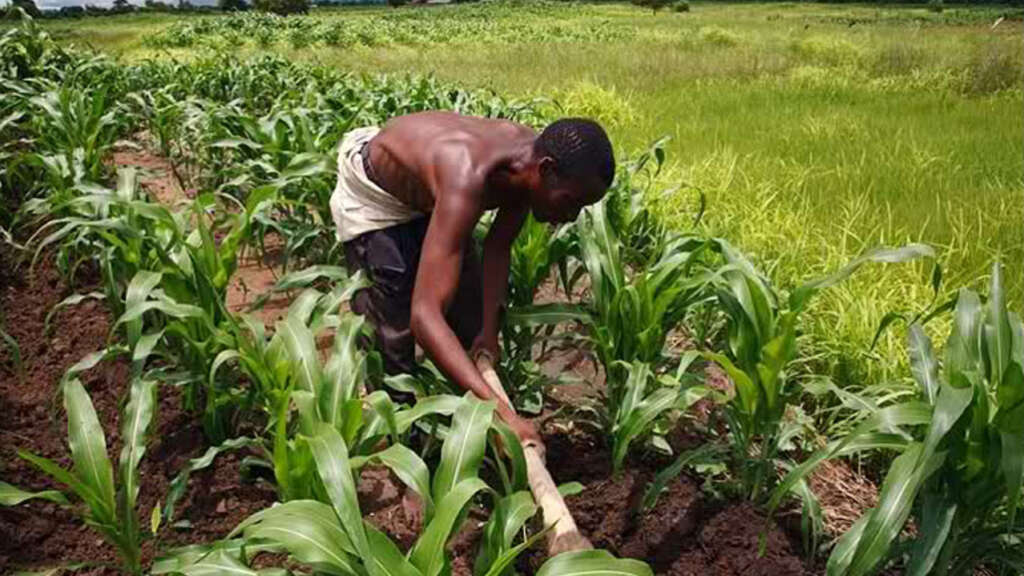Trends
How Agriculture Contribute To The Nigeria Economy. Top Things You Should Know
The importance of Agriculture in Nigeria can never be overemphasized. Although oil & Gas was the mainstay in the past, the presence and the future of Nigeria’s economy

Agriculture is at the centre of the Nigerian economy, providing the main source of livelihood for the majority of Nigerians. The farming sector of this West African country employs about 70 percent of the entire country’s labour force.
The importance of Agriculture in Nigeria can never be overemphasized. Although oil & Gas was the mainstay in the past, the presence and the future of Nigeria’s economy. Agriculture due to its overwhelming importance in human survival and Community and economic development.
Agriculture is generally defined as the art or science of cultivating the soil for the production of crops and animal husbandry for human consumption.
Below are the importance of Agriculture in Nigeria Economy
MASSIVE EMPLOYER OF LABOUR
Nigeria currently has a very high youth unemployment rate and this is beginning to result in a security threat in the country. Agriculture has the potential to rescue Nigeria from this quagmire.
Although no longer the largest sector of the Nigerian economy, agriculture still remains the single highest employer of labour in Nigeria, most especially in the rural areas. As of 2010, agriculture alone was employing about 30% of the population, and this figure is steadily on the increase because a whole lot of young people are picking up agriculture as an alternative after leaving school.
FOREIGN EXCHANGE EARNER
Agriculture is the second highest foreign exchange earner for the country, Again, after oil. In the agricultural sector, cocoa is the highest foreign exchange earner with Nigeria producing more than 200,000 tons of cocoa per annum. This output can be greatly increased if the current traditional methods of cultivation are traded for more modern mechanized methods.
After cocoa, rubber is currently the second-highest non-oil foreign exchange earner for Nigeria.
FOOD SECURITY
It is a common saying that the quality of food consumed by a people is a stark revelation of the quality of life of the people. With a population of more than 160 million and growing, Nigeria needs to produce enough food to cater for its growing population and also export to earn foreign exchange.
In recent years, the government of Nigeria has put forth policies to promote agriculture in the country. Although a lot has been achieved in the area of food security, a lot still has to be done.
Nigeria is currently looking to cut down on the huge amounts of money in foreign currency that is spent on subsidizing food imports. A sure way of achieving this is to leverage the comparative advantage of good weather and vast arable land that Nigeria has, to produce food to cater for her population and also feed other nations.
DIVERSIFICATION OF ECONOMY
With the current dwindling of crude oil prices in the international market, there has never been a time that Nigeria needs to diversify more than now. In the quest for diversification, agriculture seems to be the most sustainable way forward.
PROVISION OF RAW MATERIALS
Another major role currently being played by the agricultural sector in Nigeria is in the provision of agro-based raw materials to cater for the fledgling manufacturing and production industry. Crops such as cotton, cassava and oil palm, as well as animal products such as cattle hide and wool are very important raw materials that are in high demand in a variety of industries.
An abundance of raw materials will boost the output of the existing industries and also attract foreign direct investments (FDI) into the country.
CONCLUSION
The role of agriculture in Nigeria’s economy cannot be overemphasized. As it stands now, the role of agriculture is on the ascendency because of the current fall in oil prices. The government should do well to build on the progress of the previous administrations in the area of agriculture. As well as the government, the citizens of Nigeria should also focus more on agriculture because it is extremely important, highly sustainable and also largely underexplored
